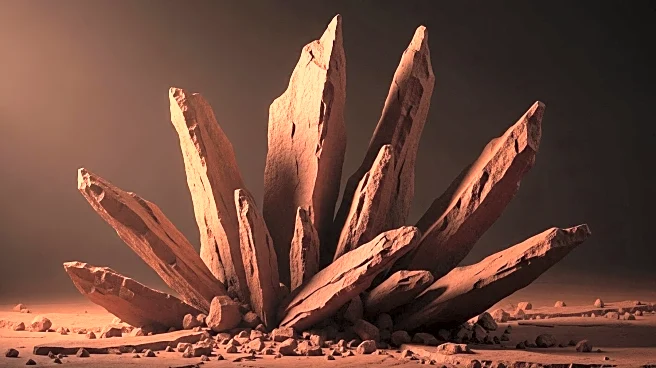What's Happening?
Recent research published in the journal Science has revealed that Mars's mantle contains ancient fragments from its formation, preserved like geological fossils. These findings were made possible through seismic data collected by NASA's InSight mission, which detected subtle anomalies in Mars's interior. The study, led by Dr. Constantinos Charalambous from Imperial College London, suggests that Mars's mantle contains compositionally distinct chunks of material, remnants from the planet's violent early history. These fragments are believed to have been formed during colossal impacts that melted large parts of the young planet into vast magma oceans. As these oceans cooled and crystallized, they left behind these distinct chunks, which have been preserved in Mars's mantle due to the planet's stagnant outer crust.
Why It's Important?
The discovery of these ancient fragments offers a rare glimpse into the early history of Mars and provides valuable insights into the formation of rocky planets. Unlike Earth, where plate tectonics continuously recycle the crust and mantle, Mars's interior has remained largely unchanged, acting as a geological time capsule. This research could have implications for understanding the evolution of other rocky planets, such as Venus and Mercury, and may reshape scientific perspectives on planetary formation. The findings highlight the importance of Mars as a subject of study for planetary scientists and could influence future exploration missions.
What's Next?
The study's findings may prompt further research into the interior structures of Mars and other rocky planets. Scientists may seek to explore the implications of these preserved fragments for Mars's geological history and its potential for past habitability. Additionally, the research could lead to new exploration missions aimed at uncovering more about Mars's interior and its early formation processes.
Beyond the Headlines
The preservation of Mars's interior as a geological time capsule raises questions about the planet's potential for past life and its suitability for future human exploration. Understanding the composition and history of Mars's mantle could provide insights into the planet's ability to support life and its resources for human colonization.











